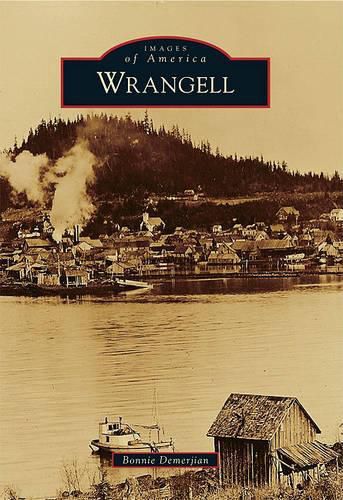Readings Newsletter
Become a Readings Member to make your shopping experience even easier.
Sign in or sign up for free!
You’re not far away from qualifying for FREE standard shipping within Australia
You’ve qualified for FREE standard shipping within Australia
The cart is loading…






Wrangell is named after Baron Ferdinand von Wrangell of the Russian American Company, who was charged with extending Russia’s fur trade into Southeast Alaska. To that end, he ordered a fort to be established in 1833, on Wrangell Island near the mouth of the Stikine River. The Stikine Tlingit Indians, who were scattered in villages nearby, moved closer to take advantage of fur trading opportunities. In 1839, the fort passed into the hands of the British Hudson’s Bay Company. With the purchase of Alaska in 1867, the need was urgent to enforce the United States’ presence in its recently acquired territory. An American fort was built, which the US Army occupied during a series of gold rushes, ending with the Klondike Rush in 1898. Wrangell began to grow beyond its boom-and-bust origins during the 20th century, becoming a thriving hub for lumber, fishing, and mining, as well as the newly minted tourist industry.
$9.00 standard shipping within Australia
FREE standard shipping within Australia for orders over $100.00
Express & International shipping calculated at checkout
Wrangell is named after Baron Ferdinand von Wrangell of the Russian American Company, who was charged with extending Russia’s fur trade into Southeast Alaska. To that end, he ordered a fort to be established in 1833, on Wrangell Island near the mouth of the Stikine River. The Stikine Tlingit Indians, who were scattered in villages nearby, moved closer to take advantage of fur trading opportunities. In 1839, the fort passed into the hands of the British Hudson’s Bay Company. With the purchase of Alaska in 1867, the need was urgent to enforce the United States’ presence in its recently acquired territory. An American fort was built, which the US Army occupied during a series of gold rushes, ending with the Klondike Rush in 1898. Wrangell began to grow beyond its boom-and-bust origins during the 20th century, becoming a thriving hub for lumber, fishing, and mining, as well as the newly minted tourist industry.